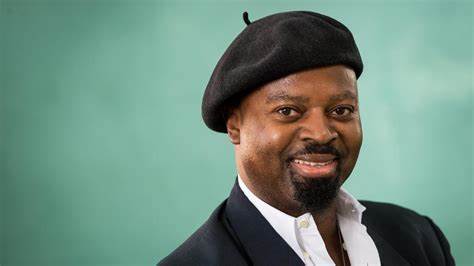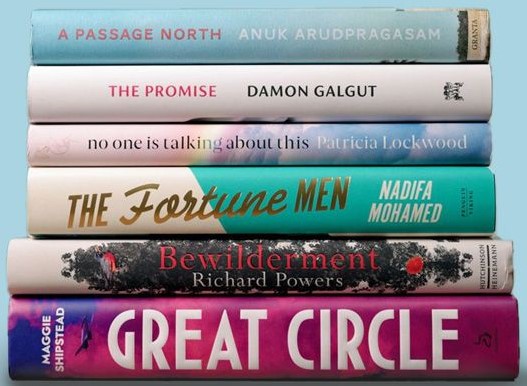
‘If I’m elected, it’s one of the key points of my candidacy to strengthen PEN Centres and encourage exchange between centres, find ways to raise funds for these centres to strengthen our writers, make an enormous contribution to what we do, make more findings, encourage dialogue and make sure no centre is left behind. All centres should feel the pulse of being a part of this global movement’
By Godwin Okondo
PEN International is a worldwide association of publishers, essayists and novelists founded to promote friendship and intellectual co-operation among writers globally, to emphasise the role of literature in the development of mutual understanding and world culture, to fight for freedom of expressions, and to act as a powerful voice on behalf of writers and journalists being harassed, imprisoned and sometimes killed for their views. The association has autonomous PEN Centres in over 100 countries. PEN Nigeria is among the three PEN Centres, including PEN U.S. and PEN U.K. that are sponsoring Okri’s candidacy for PEN presidency at the World Congress scheduled to hold from September 20-24, 2021
THE Director of English PEN, Daniel Gorman, hosted the meeting via the Zoom Meeting app, with writers, poets and journalists all around the world asking questions on Ben Okri’s vision for the association. Phillip Sands, another member of the organization, engaged the presidential aspirant in a conversation, asking questions and hearing his thoughts on how he would run the organization if elected. Okri (OBE) is the author of The Booker Prize-winning novel, The Famished Road in 1991,among other critical works, his latest novel being The Freedom Artist.
While speaking on the challenges that excited him to want to take on PEN presidency role, Okri said, “The ideas of PEN animated me and it has been my calling. We live in a world where challenges are present to everyone and I believe PEN is situated as a beacon, to guide us through these challenging times.
“PEN as well needs to be strengthened to be able to step up to these challenges. These are times of hate speech, oppression, and clamped-down governance; in Nigeria, there exists the Twitter ban and assaults on journalists, and voters’ freedom is being eroded in the United States. This is when PEN is called to help tackle these problems.”
On ways and principal instruments the organization has to tackle problems regarding freedom of speech, Okri said, “We have the power of our voice. When we come together to talk about these issues we face, the way we draw attention to writers who are arrested or carted off, our voices can draw a legion.”
Okri also shared his past engagements as a writer, when he noted; “I can say my career is directly linked with PEN. I wrote my first story in 1984, which was published by newspapers and reviewers, this marking the beginning of my career. I campaigned for Ken Saro-Wiwa, signed speeches and defenses. I have served as the Vice President of PEN for over 20 years and I have recently been involved in a PEN initiative to raise funds with one of my books. I support PEN continuously because of the strength and beauty of its ideas. PEN is a great sacrifice by journalists and writers across the world and I am very happy to be a part of this.”
On working outside PEN and his contribution to external activities, he said, “I have been contributing as a writer. Now, I believe I have a vision; I see how powerful PEN can be, and how it can grow more powerful and monumental. More doors can be opened; there are people we can speak to and there are numerous ways we can raise funds.
“PEN has a committed team which has given their life to its cause. PEN has a transformative vision that can take us to a better place. I think what I can do as a writer outside PEN has been done, and this is the time to step up.
“If I’m elected, I don’t think I will put aside my writing. I’ll just write in a different way. The old presidents kept on writing. If one has a deep love for writing, both roles will function together. Serving like this is a thing of value, in a double sense.”
Speaking on how PEN will adjust to global challenges, he said, “one of the key elements of my campaign is to strengthen the Global South, and I think these countries have a lot to teach the west. There should be a collaboration which will aid in developing both areas.
“We can have mutual festivals of exchange where writers can visit and experience the warmth and riches of knowledge in Africa, and in the media. We all see the riches of the North, but that of the South is untapped. More programmes and hubs can be created from this. PEN is also about literature, not just fighting for imprisoned writers.”

Okri also spoke on his experience with the board of trustees of The Booker Prize and the National Theatre of the U.K. and working experiences, when he said; “That part of governance is strong and requires a lot of stamina. I have been on many boards and I find it to be one of the best ways of understanding and guiding an organization. The board of an organization guides the organization, and has to listen and be open to different personalities.”
He also spoke about his weakness as a leader, he said, “I have the tendency to want to listen to every single point of view, and I do this because I feel people haven’t expressed themselves fully. I want to get to the point where that deep expression can come out.”
Okri also spoke on ways which exiled PEN Centres can be supported. “They need a sense of community. I want to bring the activist and community side of PEN together to play. To be truly powerful to help our writers targeted by governments, we need a very powerful organization, monumental in itself, and we are moving towards where PEN has to change its game to support these writers, and funding is important for this.”
On skills required for fundraising, he said, “we need to internationalize fundraising. There are numerous funding sources across the globe we don’t look at, which people are sensitive to our ideas and goals.
“We want to sensitize our funding, and our level of funding requires professional approach. We are up against government with unlimited resources, so we need a large amount of funding. We also have to be inspirational and visionary in the way we raise funds. I want to make sure there is an excellent fundraising every month, and I’m going to work hard to make this a reality. We will subject the source of the money to rigorous scrutiny; our research has to be a worldwide thing for that reason.”
Speaking on language diversity, with so many languages facing possible extinction, Okri said, “We are facing a gradual erosion of languages, and these languages have to be protected. This is something that happens in Nigeria, where there are over 200 languages, majority of these are being forgotten. I would like to make contact with remote PEN Centres and arrange writing competitions, as well as providing computers to remote areas.”
On a final note, Okri said, “if I’m elected, it’s one of the key points of my candidacy to strengthen PEN Centres and encourage exchange between centres, find ways to raise funds for these centres to strengthen our writers, make an enormous contribution to what we do, make more findings, encourage dialogue and make sure no centre is left behind. All centres should feel the pulse of being a part of this global movement.”



